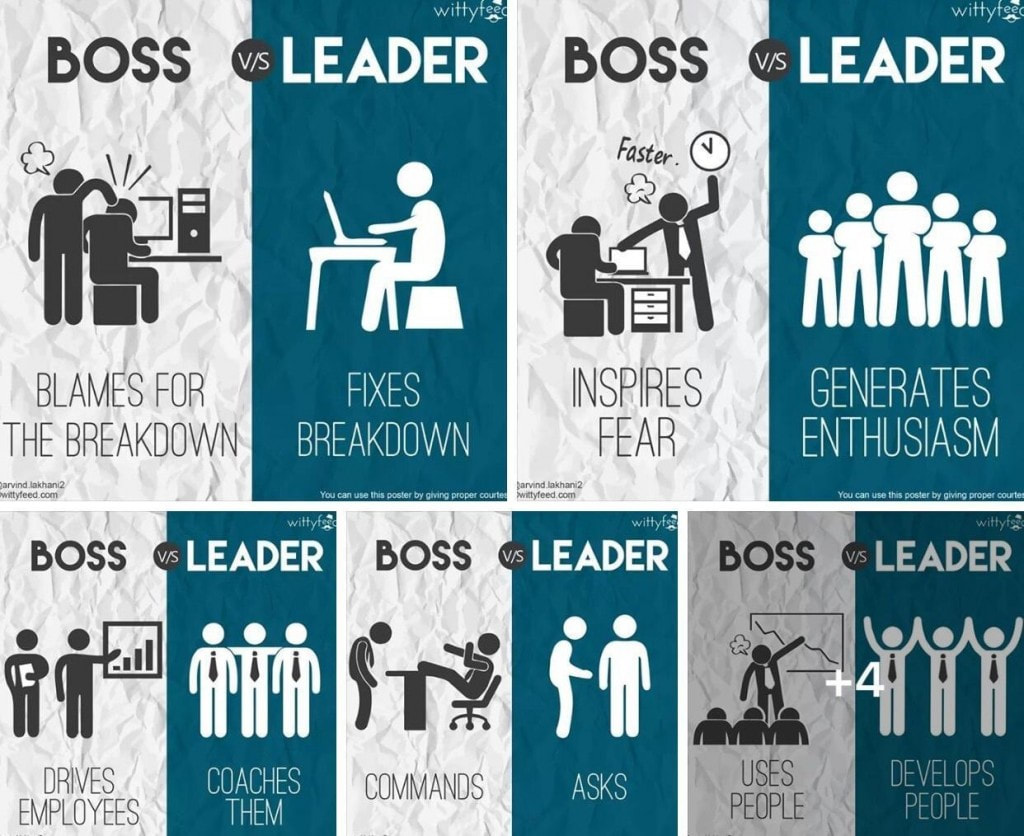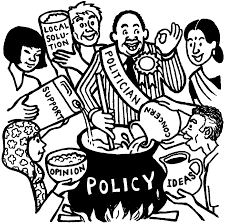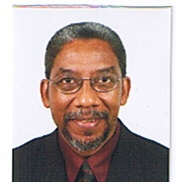 August 1, 1838 – Emancipation Day – End of chattel slavery, Former slaves blocked from becoming independent farmers as colonial authorities pass Territorial Ordinance prohibiting the sale of less than 100 acres of land. Ex-slaves respond by squatting on Crown lands and abandoned estates in Trinidad and many became labourers in the urban areas. In Tobago, the métayage system (a form of sharecropping) emerged as ex-slaves became peasant farmers and later wage labourers. They fought against their oppressive conditions culminating in the Belmanna Riots in 1876. April 22, 1917 – The last ship with Indian indentured labourers arrives in Trinidad. Indentureship was completely abolished on January 1, 1920 by the British colonialists following World War I. Many resistance movements like the Hosay Riots of 1884 and the 1903 Harmony Hall estate strike contributed to the end of indentureship and the movement to ‘free’ wage labour. Doulat Singh, the leader of that strike was banished back to India. 1890’s – formation of first working class organisations – Working Men’s Reform Club, Trinidad Working Men’s Association (TWA), Woodcutters Union and emerged. Other organisations of working people like the Pan African Association, East Indian National Association and later the Ratepayers Association emerged in the urban areas, the latter led battles like the 1903 ‘Water Riots’ in Port of Spain against measures including the planned introduction of water meters. 1908 – Commercial oil production began in Trinidad 51 years after the first oil well was drilled in 1857. Exports of crude oil began in 1910 and the first refinery was built in Point Fortin in 1912. The oil industry expanded during World War I as oil became important fuel for the British war fleet. 1918 – Habitual Idlers Bill introduced. This law provided for any male worker ‘lacking means of subsistence’ could be confined to a government-run agricultural settlement to be taught the ‘habits of industry’. 1919 – First major national strike involving workers from several industries. May – asphalt workers strike for wage increases and reduced working hours. November – dockworkers strike for improved conditions and bargaining rights. The strike spread to other sectors involving the sugar, oil, construction and council workers and workers in Tobago who attacked the government wireless station there. These strikes were influenced by the negative experience of many working people who served in the British military during the World War and by the victory of the Bolshevik Revolution in Russia. 1920 – Responding to the workers’ actions, the colonial authorities introduced a number of repressive measures including passage of the Habitual Idlers Ordinance and the Sedition Ordinance and the Dispute Settlement and Industrial Court Ordinance prohibiting strikes and making arbitration compulsory. Several leaders of the TWA and among the strikers were arrested and jailed and some deported. Some labour reform measures were also introduced like the Truck Ordinance 1919 which required payment of wages in money, the Labour Bureau Ordinance, an attempt to improve recruitment practices. 1921 – the colonial authorities set up the Wood Commission to investigate the social and political climate in this country. One outcome of that Commission was the first ever elections to the Legislative Council in 1925. The TWA had 3 deputies elected to the LegCo in those first elections including Captain A A Cipriani. The TWA championed several issues including abolition of child labour (Ordinance passed in 1925), for legalisation of trade unions, the 8-hour working day and the repeal of the Masters and Servants Ordinance. The TWA became the Trinidad Labour Party (TLP). 1930’s – The economic conditions in this country deteriorated in the years coming into the 1930’s. The sugar and cocoa sectors in agriculture were suffering from loss of markets, collapse of world prices and plant disease problems. The oil industry went into recession in the early 30’s after the boom of the War period and the 20’s when 2 companies were established – United British Oilfields of Trinidad (UBOT), a subsidiary of Shell and Trinidad Leaseholds Limited (TLL). Despite the passage of the Workers’ Compensation Ordinance and the Trade Union Ordinance in 1932, these laws failed to provide protection for all workers and their Rights to picket and strike and conduct their struggles for improvements in their working conditions. As the influence of the TWA and Cipriani declined, new organisations and leaders emerged among the working class to lead its fight. The Negro Welfare Cultural and Social Association (NWCSA) led by Elma François, Jim Barrette and Christina King which organised mainly in urban Port of Spain and had links with the emerging movement led by Tubal Uriah Butler among the oil workers. 1935 - March – Apex Oilfield works strike and marched to Port of Spain led by Butler. October – the NWCSA mounted protests against the Italian invasion of Ethiopia and British conciliation with fascist Mussolini. 1936 – Butler formed the British Empire Workers and Citizens’ Home Rule Party (BEWCHRP). The TLP remained strong in Tobago. 1937 – The oil workers and others continued a series of strikes and hunger marches to protest the oppressive and deteriorating working and social conditions and the growing demand for home rule from the Crown Colony system. On June 19, 1937, the sit-down strike at Forest Reserve Oilfield marked a new phase in the growing anti-colonial struggle. The police attempted to arrest Butler leading to the ‘Charlie King’ incident in Fyzabad which forced Butler to go into hiding. Adrian Cola Rienzi, Butler’s co-organiser took up the leadership. Despite the repressive measures of the colonial government and the police and British military which despatched 2 warships, the Ajax and the Exeter to this country, the strike spread to the other oilfields, to the sugar industry and across both islands over the next week and the rebellion (later labelled the Butler Riots) went on till July 6. The main banner of the 1937 uprising was Let Those Who Labour Hold the Reins! 1938 - In 1938, like the aftermath of the 1919 General Strike, the colonial authorities in England appointed another Commission of Inquiry following the Butler Riots, the Foster Commission made recommendations for establishing the machinery for Collective Bargaining including the creation of a Labour Departments. By the end of 1937, several trade unions were registered and obtained legal status including the Oilfields Workers’ Trade Union (OWTU), All Trinidad Sugar Estates and Factory Workers’ Trade Union (ATSEFWTU), Amalgamated Building and Wood Workers Union (ABWWU), Federated Workers’ Union (FWTU), Public Workers’ Trade Union (PWU) and Seamen and Waterfront Workers’ Trade Union (SWWTU). In 1938-9, several more unions were registered, including, All Trinidad Transport and General Workers’ Trade Union (ATTGWTU), Railway Workers’ Trade Union (RWTU), Printers’ Industrial Trade Union (PITU), Trinidad and Tobago Union of Shop Assistants and Clerks (TTUSAC), Civil Service Association (CSA), Tobago Industrial Union (TIU) and Tailors’ Industrial Union (TIU). The first central labour confederation was established in March 1938 – the Committee of Industrial Organisation which was led by Rienzi. More labour legislation – the Trades Disputes (Arbitration and Inquiry) Ordinance 1938 and the Trade Disputes and Protection of Property Ordinance 1943 – were later passed. The Butler Riots marked the birth of the modern trade union movement in Trinidad and Tobago. The 1937 uprising was anti-colonial in its character and the call for Home Rule was also raised and had also spread into unrest throughout the English colonies in the Caribbean. Another Commission of the colonial power, the Moyne Commission, recommended universal adult suffrage which was introduced after World War II. The Butler Riots, anti-colonial uprising also marked the birth of the Independence movement in Trinidad and Tobago. On July 6, 1937, the Trinidad Guardian newspaper announced: “The strikes are now dead: only their ghosts remained to be buried”. Try as they may, the colonial authorities, the international and local big business owners, the employers and their successors, can never extinguish the spirit of 1937. As much as the inheritors of the colonial structures of power may try that spirit of the anti-colonial uprising is alive and well in the hearts and consciousness of the workers and people of Trinidad and Tobago who will never abandon their struggle to defend and advance their Rights and to decide their own future and that of this society and nation. Nor will those who have abandoned the goals and methods of the leaders of 1937 succeed in extinguishing this spirit. The ghosts will never be buried. The ghosts of 1937 will continue to haunt those who prop up a system of oppression and exploitation of the working people. The strikes are not dead. LET THOSE WHO LABOUR HOLD THE REINS OF POWER, CONSTITUTE THEMSELVES AS SOVEREIGN AND BUILD A SOCIETY THAT GUARANTEES THE RIGHTS OF ALL! Clyde Weatherhead A Conscious Worker Continuing to Fight in the Spirit of June 19, 1937. 19 June 2021  There is growing concern among workers regarding reported demands by employers that workers must have mandatory COVID-19 vaccinations to continue in work or to be employed at all. Workers are asking: Can my employer fire me if I don’t get vaccinated? Or Can an employer require that I be vaccinated before I am hired? At this moment, the short answer is NO. There is no legal requirement for compulsory vaccination in Trinidad and Tobago. For such compulsory vaccination to be required, it may be imposed by way of legislation passed by Parliament. Another way may be by way of Regulations under the Occupational Safety and Health Act or Public Health requirement. Any of these routes requires policy decision by Government. As for employers, such a requirement cannot be unilaterally imposed without consultation with the employees and more so where there is a Recognized Majority Union there must be negotiation and agreement as to this new term of employment. As for an employer making vaccination a condition for new employment, such a condition must be required by law or shall be established condition of employment in the practice of employment in this country. Failure to employ is one of the elements of a Trade Dispute within the meaning of the Industrial Relations Act and refusal to employ anyone for this reason may by challenged with the assistance of a trade union in the Industrial Court. So, whether it is for dismissal or refusal to employ the demand of an employer for compulsory vaccination is challengeable in the absence of a legal requirement for same. For those who suggest that any requirement for mandatory vaccination may be a Health and Safety Issue and not an issue of terms and conditions of employment, and a part of the employer’s duty to provide a safe workplace including a safe system of work, again in the absence of a legal requirement, the employer’s action can be challenged. There is currently no provision in the OSH Act or the Regulations for such mandatory COVID-19 vaccination. This is a new situation in our arena of employment relations. It is a new situation faced by the entire country and the world. As such, this situation demands open urgent social dialogue and tripartite discussion involving government, employers and labour, to determine an appropriate policy for the workplace. . Leadership in initiating such discussion should have come from Government which has principal responsibility for the public health of the population and for maintaining a stable employment relations climate to facilitate the economic welfare of the society. This issue is much larger than any individual or collective contract negotiation involving a single or multiple workers and their and employers. This is not a simple matter of traditional collective bargaining. This is a matter which should not be left to whether an affected worker engages the disputes procedure and proceeds to the Industrial Court on a Trade Dispute or a matter under the OSH Act. This is a situation clamouring for urgent social dialogue and national setting of appropriate policy direction to avoid unnecessary conflicts and fights distracting from the National Purpose of defeating the COVID threat and protecting lives and livelihoods. This crisis demands leadership at all levels. The potential for a slew of industrial relations conflicts can be avoided and Government should take the leadership and convene social dialogue, not merely consultation, to arrive at a must win solution in the interest of all. Clyde Weatherhead A Citizen Calling for Social Dialogue to serve the National Purpose. 06 June 2021  COVID has forced a compaction of time and space, not in the physical sense, but in the sense of our social relations, our thinking and rapidly changing situation and its demand for our attention and action. . Man is after all a creature of habit and the measures we are obliged to adhere to curb the spread of the virus and save our own lives and everyone else’s are not our accustomed routine. So, we react to the demand for change in our routines and our behaviour – individual, collective and societal – with effort which requires exertion and real work and we tire because of these exertions. Our language in its dynamic adjustment calls it COVID fatigue. But, we dare not waver or become weary or that spiked corona little bit of genetic material and protein will defeat us, no matter how much we imagine our dominion over all things living or non-living. It had been a bruising and energy-sapping couple of weeks absorbing the bad news of the galloping positive tests and active cases as at last the parallel health system was on the brink and the fatality count was unbelievably high. On top of all that heavy news, we were bombarded by the tit-for-tat barrages of the blame game between the opposing sides of the political monopoly thinking this a perfect opportunity to elevate their one-upmanship game for the shoring up the support from their respective bases. Their quest for what they each conceive as advantage, is just so draining at a time when the demand is for all who claim positions of leadership to do what is required in this crisis – LEAD. So, I began my attempt at resuscitation of my willpower and energies in preparation for the next week of the battle. Music does it for me. Beginning my weekend resuscitation of willpower, I took to the Friday night musical offerings on American Public Television. There it was on Firing Line the promo portended an interview and concert with a renowned cellist, Yo-Yo Ma. In the midst of his virtuoso playing, he was asked about the decline of the phenomenon of the amateur musician, he only becoming a professional in mid-life despite being a child prodigy. Responding, he pointed to recording and music industry as a big factor, leaving the vast majority of music lovers the comfortable to be listeners to the performances at leisure. No longer was participation in making the music something worth pursuing for its own purpose. Then he said, “It’s like citizenship. Unless you are fully engaged, it is not my country. It is somebody else’s country. You think the problems are so great, you leave it up to the experts and you are disconnected”. And it connected. It was as if he was speaking of our COVID situation and the response to it. Follow the Science! We are guided by the experts. Accept information only from official sources – The are the daily admonishments we are exhorted to follow. It is not new. Since the time of our Independence and for nearly 59 years we have been encouraged to believe that the issues politics and governance are so great that they are beyond our simple comprehensions. Leave it up to the experts, the politicians and political parties, analysts and gurus. And we have become disengaged and disconnected and trained to hang on to the words of our special breed – the politician at the next speech or declaration. We are reduced, like the amateur musicians, to spectators at the next grand performance or consumers purchasing the next ticket or record, CD or DVD so we may watch and listen to the masters. We are told you do not understand the complexity of the issues. You are not certified politicos like us. Thus, we are reduced, at best, to being the foot soldiers pounding the pavements, going to the next rallies and denouncing truth and reality using fake profiles and distorted logic on social media, all for the benefit of the ‘special ones’ who are anointed to rule. That is has led us to the point that we are denounced as ‘unpatriotic’ if we dare question what is being presented or demand that they leave out the politicking and provide us with clear guidance on how to overcome this unseen enemy. This is the destination of one road that was offered us back in the 1955-62 period as ‘party politics’ and from 1962 as ‘responsible government’. But, in 1962, there was another voice that dared to say there is another way, an alternative. That voice was PEGASUS and its alternative plan for nation-building called Project Independence. This organisation, taking the initiative to develop solutions to national development issues, an NGO contemporary terms, took on what a Government or Planning Ministry would largely be responsible for. Developing the plan was an effort, conducted with the widest possible inclusion of the People of Trinidad and Tobago to develop their own plan and programme for the building of the nation in the spirit of the initiatives of Independence, unfettered by partisan politics and governmental officialdom It was the first attempt by citizens to define for themselves the road to the future for the society with their own vision and in their own interest. Project Independence spoke to the political responsibilities of each and every citizen and the need for their attention to and involvement in political affairs for the achievement of the National Purpose. It said: “the general public be no less aware of matters of political importance; “awareness of and involvement in political matters is tantamount to a moral responsibility of every citizen who should seek to learn of the affairs of the Country and to express fearlessly but reasonably his views on public matters:” (From the Text of Project Independence reproduced in Pegasus and the Making of Project Independence, Clyde Weatherhead, 2020, ISBN: 9798647268457). COVID with its compaction of time and space also forces us to contemplate these matters of the future of our nation and our role in it. Either we take up the challenge and prepare for doing things differently or we succumb to the comfort of the anti-conscious cocoon comfortable with the way we have done things. Overcoming the crisis is immediate and urgent. Preparing for meeting future challenges is more down-the-road but equally on our plates for the day we defeat the pandemic. It cannot be same ole, same ole. We must define the really new normal and the role of each of us in it that we must shape beyond this moment. Clyde Weatherhead A Citizen Fighting for the Realisation of Trinbago. 30 May 2021 |
AuthorI am a appalled at the loss of the simple skills of discussing ideas and sharing Opinions to DEEPEN ANALYSIS and UNDERSTAND DEVELOPMENTS to ARRIVE AT SOLUTIONS. Archives
April 2024
Categories |

About Clyde Weatherhead
Clyde has been involved in public life as a political activist, a trade unionist, Lawyer, Teacher and Author |
Connect With Clyde
Write to Clyde on Facebook Visit Clyde's Author Page on Amazon Go To Discussion on Facebook For Employment Relations Issues |

 RSS Feed
RSS Feed